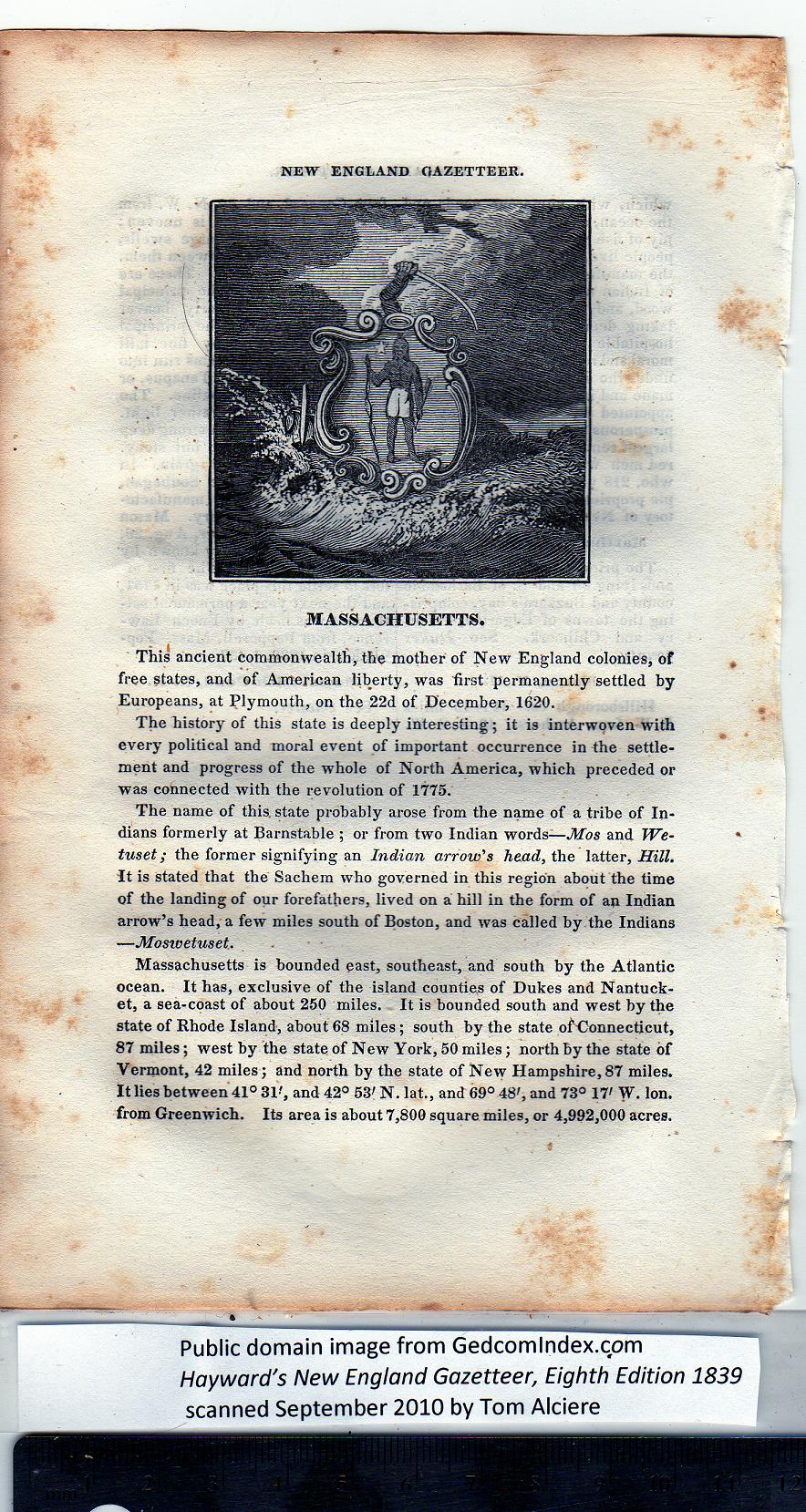|
NEW ENGLAND GAZETTEER.
MASSACHUSETTS*
This ancient commonwealth, the mother of New England colonies, of
free states, and of American liberty, was first permanently settled by
Europeans, at Plymouth, on the 22d of December, 1620.
The history of this state is deeply interesting; it is interwoven with
every political and moral event of important occurrence in the settle-
ment and progress of the whole of North America, which preceded or
was connected with the revolution of 1775.
The name of this, state probably arose from the name of a tribe of In-
dians formerly at Barnstable ; or from two Indian words^—Jlfos and We-
tuset; the former signifying an Indian arrow's head, the latter, Hill.
It is stated that the Sachem who governed in this region about the time
of the landing of our forefathers, lived on a hill in the form of an Indian
arrow’s head, a few miles south of Boston, and was called by the Indians
—Mostv e tus e i.
Massachusetts is bounded east, southeast, and south by the Atlantic
ocean. It has, exclusive of the island counties of Dukes and Nantuck-
et, a sea-coast of about 250 miles. It is bounded south and west by the
state of Rhode Island, about 68 miles; south by the state ofConnecticut,
87 miles; west by the state of New York, 50 miles; north by the state of
Vermont, 42 miles; and north by the state of New Hampshire, 87 miles.
It lies between 41° 31', and 42° 53' N. lat., and 69° 48', and 73° 17' W. Ion.
from Greenwich. Its area is about 7,800 square miles, or 4,992,000 acres.
PREVIOUS PAGE ... NEXT PAGE
This page was written in HTML using a program written in Python 3.2 and image-to-HTML text generated by ABBYY FineReader 11, Professional Edition.
|
